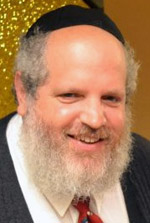Parshat Va’Yigash (And He Approached)

CARLSBAD, California — This week’s portion is titled VaYigash, which translates as “And He Approached.” Contextually this portion takes place after Benjamin is accused of having stolen the chalice of Joseph. Of course we know the truth – the chalice had been planted in Benjamin’s sack on Joseph’s orders. Joseph had purposely framed his brother (who did not yet realize that the Viceroy of Egypt was actually his older, full-brother) as a way of testing his older half-brothers. He had to ascertain if they had changed their ways and if they had repented for their betrayal of him some 20+ years previously.
The brothers are mortified that the chalice had been found in Benjamin’s possession. When they are told that they would be free to go and only the guilty party would be held due to his crime Judah, the very brother who had influenced the others to sell Joseph as a slave, confronted Joseph, which is how this portion begins.
The expression of Judah’s approach to Joseph used in our portion denotes a strong approach – almost an aggressive approach. In fact, when we read Judah’s full quote we see that he beseeches Joseph not to be angry with him for what he is about to say. The commentaries explain that he asked for forgiveness in advance because he was going to discuss the ‘sticky’ situation in a decidedly non-diplomatic way. In fact, the commentaries explain that Judah let Joseph know that either they can work things out diplomatically or things would be decided in a different manner.
Judah made a heartfelt plea to Joseph and offered himself in exchange for his brother Benjamin. He explained that if Benjamin were to remain in Egypt, as a slave, this would mean the death of his elderly father Jacob. That would mean that two lives were going to be lost (Benjamin’s and Jacob’s) due to this one sin. It is interesting to note that nowhere does Judah claim that Benjamin is innocent. He is ‘negotiating’ on the assumption that Benjamin is guilty – yet still he offers up his very life in exchange of his brother!
Ultimately there is a very happy ending to this story. The long-alienated brothers are reconciled. Not only have all the brothers and the family been reunited, but they were actually saved from the continued ravages of the worldwide famine.
The Rebbe, Rabbi Menachem Mendel Schneerson of blessed memory, explains that there is a profound lesson to be learned from Judah’s forceful approach. One would think that Judah should have couched his approach with tremendous diplomacy, speaking delicately and in an exceedingly careful manner. Instead we see something different. Judah spoke in an almost harsh way because he had to convey his passionate devotion to his brother. Judah was literally risking his life to fight for the survival of his fellow Jew!
It turns out that it was precisely this passion that penetrated Joseph’s heart causing him to reveal his love of his brothers.
For us this means that we must nurture our love of our fellow Jew. It must be worked on until it is a passionate fire that informs all of our dealings with one another. When we see a Jew who is, G-d forbid, in trouble, we need to lay it all on the line to try and help. And when we do this, we have the ability to change the entire situation around in the blink of an eye. It is precisely this approach that will cause us to come together as one, which will ‘inspire’ the One Above, and which will ultimately lead to the immediate arrival of our righteous Moshiach!
Wishing everyone a happy and HEALTHY Shabbos!
*
Rabbi Yeruchem Eilfort is Director of Coastal Chabads and Chabad at La Costa. Rabbi Eilfort welcomes readers’ comments and questions and may be reached at RabbiE@ChabadatLaCosta.com.